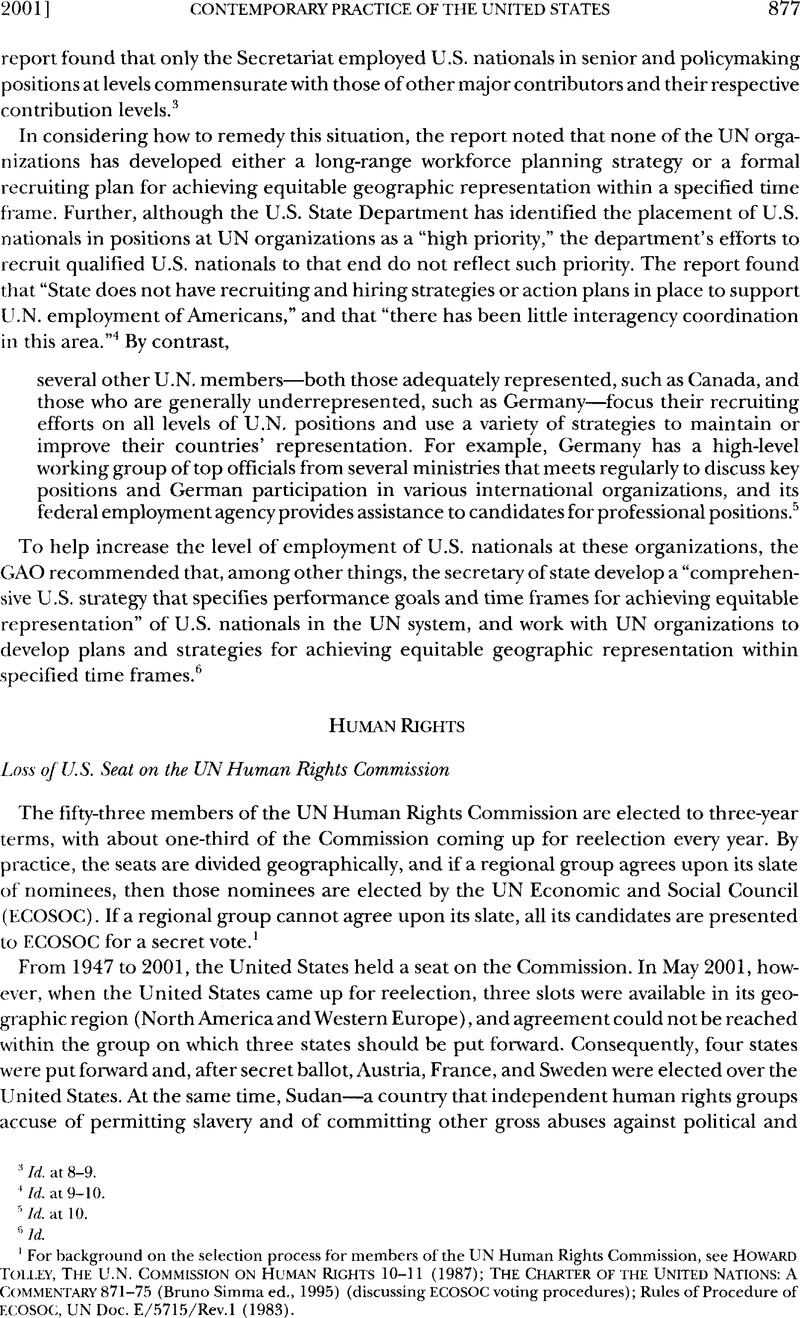Article contents
Loss of U.S. Seat on the UN Human Rights Commission
Published online by Cambridge University Press: 10 March 2017
Abstract

- Type
- Contemporary Practice of the United States Relating to International Law
- Information
- Copyright
- Copyright © American Society of International Law 2001
References
1 For background on the selection process for members of the UN Human Rights Commission, see Howard Tolley, The U.N. Commission on Human Rights 10–11 (1987); The Charter of the United Nations: A Commentary 871–75 (Bruno, Simma ed., 1995)Google Scholar (discussing ECOSOC voting procedures); Rules of Procedure of ECOSOC, UN Doc. E/5715/Rev.l (1983).
2 See Barbara, Crossette, U.S. Is Voted Off Rights Panel of the U.N. for the First Time, N.Y. Times, May 4, 2001, at A12 Google Scholar. For the composition of the UN Human Rights Commission after the election, see Office of the High Commissioner for Human Rights, United Nations Commission on Human Rights Membership for the 58th Session (2002), at <http://www.unhchr.ch/html/menu2/2/chr.htm>.
3 See, e.g., Harold, Hongju Koh, A Wake-up Call on Human Rights, Wash. Post, May 8, 2001, at A23 Google Scholar.
4 See U.S. Dep’t of State Daily Press Briefing at 4 (May 4, 2001), at <www.state.gov>; Marc, Lacey, U.S. Attacks Rights Group for Ousting It as a Member, N.Y. Times, May 5, 2001, at A4 Google Scholar (quoting a White House spokesman that a “Commission that purports to speak out on behalf of human rights, that now has Sudan and Libya as members and doesn’t have the United States as a member, I think may not be perceived as the most powerful advocate of human rights in the world”).
- 1
- Cited by




